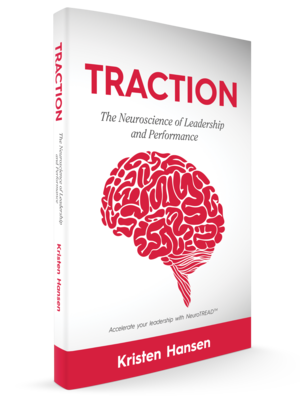Psychological Safety
Create for self and others
Psychological Safety
An environment grounded in trust and mutual respect, where people feel comfortable speaking up, asking for help, bringing their whole self to work and embracing a learning mindset.
Being able to show and employ one’s self without fear of negative consequences of self-image, status or career.
Part 1: Generating Psychological Safety for Self
- Understanding what psychological safety is
- The benefits of psychological safety
- Creating a brain state for psychological safety (understand how the brain works and how the PFC interacts with the limbic system In detecting threat in our environment)
- Creating a growth mindset and reappraisal techniques in order to regulate our own sense of safety (including things such as: seeing feedback as a gift, understanding different personality styles can be more slant/direct vs passive/indirect and recognise these as an emotional response of fight, flight or freeze)
- Activity reappraise, discuss your reappraisal and growth mindset strategies in groups
Part 2: Leading and Collaborating to Generate Psychological Safety
- Peak performance in others requires psychological safety
- Top 10 strategies to generate psychological safety for others
- Activity: ascertain which strategies you can do more of for team members or stakeholders
- A coaching and a questioning approach to generate empowerment, ownership and safety
- Creating a High Performance culture of innovation, diversity and performance
4 Steps to boost Psychological Safety
- Focus on performance
- Train individuals and teams
- Incorporate visualisation
- Normalise vulnerability
Source: HBR, 4 steps to boost psychological safety at your workplace
KEY TOPICS & OUTCOMES
- Benefits of Psychological Safety
- How the brain responds to safety vs threat
- Steps to boost
- Psychological Safety for yourself
- Reappraisal, resilience and growth mindset
- Psychologically Safe Workplaces
- Leading individuals and teams positively
- Create an environment for diversity, innovation and performance
- Coaching for Wellbeing and Psychological Safety
- Psychologically Safe Challenging Conversations
- Habits to form to maintain a sense of safety
Strategies to Create Psychological Safety
- Promote self-awareness.
- Demonstrate concern for team members as people.
- Actively solicit questions.
- Provide multiple ways for employees/others to share their thoughts.
- Show value and appreciation for ideas.
- Promote positive dialogue and discussion.
- Be precise with information, expectations and commitments.
- Explain reasons for change. Share the “why”.
- Own up to mistakes.
Sournce: Quantum Workplace, future of work, create psychological safety in the workplace
CLIENT TESTIMONIALS
I found the session very empowering -this is within our control to improve, it’s not something that happens to us. It was a good reminder to be conscious of how my preferences / motivators are different to my teams’.
The content was awesome! Its different because Kristen makes you understand that we react because we are human beings and gives you practical tips on how to react quickly when you feel like you’re in a threat situation, and also how to foster psychological safety in others.
Macquarie Bank

Kristen is a world of knowledge in the neuroscience space. Her passion and energy for the subject alongside her sales leadership experience in corporate settings brings together practical take-aways for leaders in applying the concepts.
I would highly recommend Kristen for future training in this space. Kristen’s session with Westpac AFS leaders received positive feedback, the leaders enjoyed the balance of the proven brain science concepts along with the practical leaderships learnings.
Teresa O’Brien
HR Manager

What Our Clients Are Saying

The quality of the training has been fantastic and our staff is really engaging with the trainer and getting something out of it.“
– Joanne Fung
Senior Manager
BT Financial

Kristen Hansen presented on the Neuroscience of Leadership to over 150 of our people leaders. Kristen’s presentation was engaging, informative and practical. Kristen was incredibly entertaining and full of energy. She was able to make complex theory simple and easy to understand whilst also applying it practically for our leaders to take back and use with their teams. The feedback from our people leaders has been exceptional with many stating that they have been able to apply much of what Kristen presented.
– Allyson Carlile
Head of HR
Westpac

I was very fortunate to be trained by Kristen as her knowledge of resilience and coaching through neuroscience-based methodologies is outstanding. Kristen has remarkable way of explaining complex theory in a way which makes it real and understandable
– Lina Di Prisa,
Human Resources Business Partner,
Suncorp

Kristen Hansen; dynamic, engaging and relevant. In presenting her neuroleadership session to the State Trustees managers, Kristen unlocked a response from the whole group that I’ve not been seen before. Every person took away strategies to help them be better leaders and they are still talking about the session months later
– John Brennan
General Manager - Strategy, Innovation & Transformation
State Trustees

Kristen’s presentation was engaging, entertaining and highly educational. Our membership community of established business leaders had only exceptional feedback and would love to hear from Kristen again in the future.
– Eleni Jordan
Carlton & United Breweries

The presentation on the neuroscience of resilience and emotional intelligence was a powerful experience for my sales team. You got them thinking about how they can be more resilient, effective and connected with their customers - great result
– Justin Melton
General Manager Sales & Marketing



